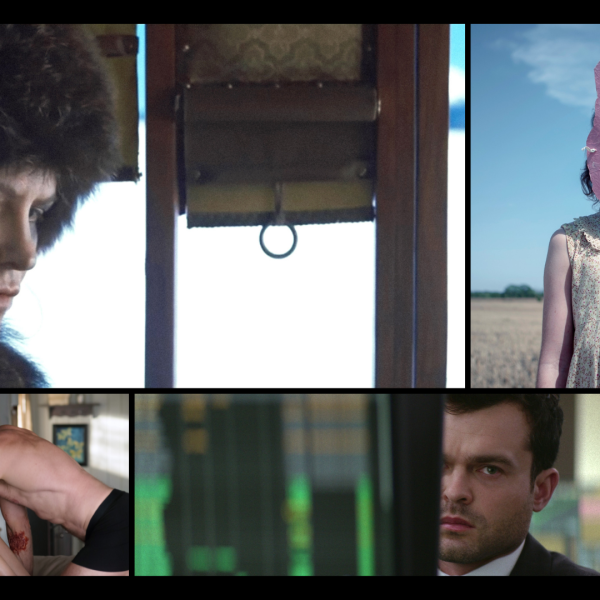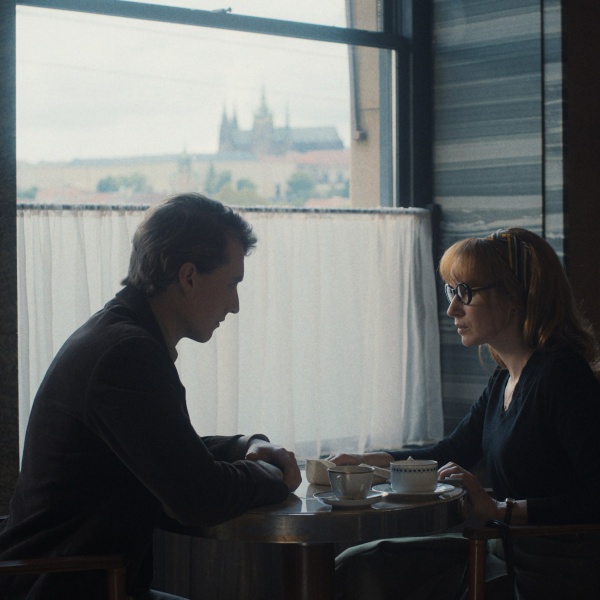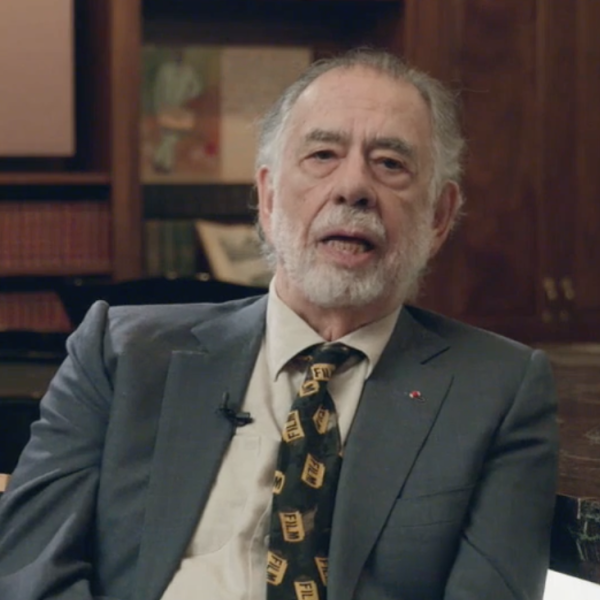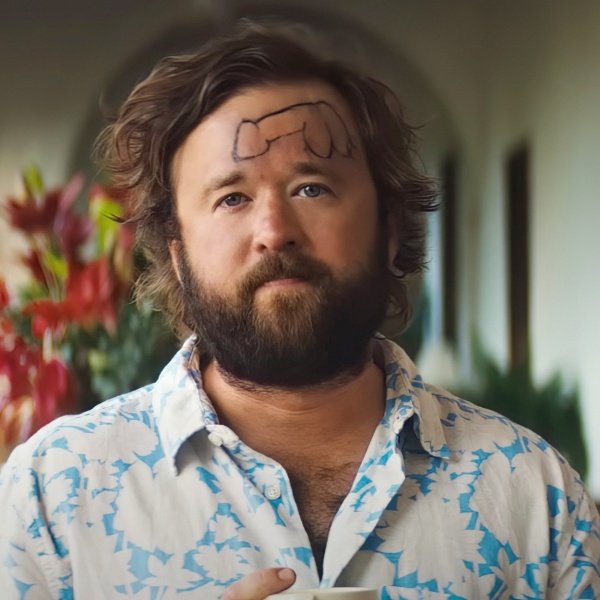A raw and lucid observational documentary about people whose life’s work is making space for death, Luke Lorentzen’s “A Still Small Voice” watches — sometimes from a distance, and sometimes at a bracing closeness — a young Jewish chaplain-in-training named Margaret “Mati” Engel as she offers spiritual care to the sick and dying at New York City’s Mt. Sinai Hospital.
Engel’s role might seem inherently religious on paper, but she struggles to embrace a God cruel enough to allow for the Holocaust (among other, more recent tragedies that have been visited upon her family), and seldom leads a session with her faith. Instead, Engel tends to offer comfort through uncertainty. “I have no understanding of what your body is going through right now,” she tells a patient during his final hours in the film’s opening scene, “but I’m doing my best, alright?” Her job isn’t to soften the enormity of these situations, but rather to help create and/or preserve a flicker of the clarity that can prove so elusive in the darkness of an ending. It’s a job that Engel’s supervisor David Fleenor characterizes by inverting a familiar phrase: “People say ‘Don’t just stand there, do something.’ We flip that: Don’t do something, just stand there.”
But Engel is doing something — something more than just her “best.” And the sobering power of Lorentzen’s film is rooted in its focus on a subject who refuses to disappear into her position or allow us to see her job for the heroism that we might normally ascribe to such beautiful work. That’s not to suggest Engel doesn’t care about her patients, but rather to say that she feels their loss and loneliness so intensely that she becomes an active participant in it, and “A Still Small Voice” — much like the residency program that it chronicles — is all the more valuable because it never pretends that being a palliative chaplain is an inherently selfless task.
It would be unfair and inaccurate to say that Engel makes her sessions “about her,” but she’s only so good at what she does because she allows herself to be a major part of them. The intractable fullness of her humanity is what gives her patients and their loved ones “the permission to be in the unknown,” and the presentness not to let these precious moments be overwhelmed by the panic of not knowing what to do or how to feel. I was awed by the work that we see Engel perform over the course of this film, and yet even or especially during the most touching moments of “A Still Small Voice,” Lorentzen mouths little reminders to us that Engel is desperately searching for some comfort of her own, and it’s only a matter of time before her inability to find it — or even to define what it might look like — threatens to turn her incredible vulnerability into a career-ending Achilles’ heel.
That dynamic is well-suited to Lorentzen’s ethos as a documentarian, as “A Still Small Voice” — along with his powerful 2019 debut, “Midnight Family” — amplifies the internal dialogue of a filmmaker who’s always conscious of the impact that his presence might have in his movies, and silently questioning his reasons for making them. The observational tendencies that inform this project might draw natural comparisons to the work of Frederick Wiseman, but there’s nothing fly-on-the-wall about a film so keenly attuned to the boundaries that Engel and Fleenor have to draw between themselves and their patients (and eventually between each other). How is Engel supposed to “clock out” when she knows a patient might be at risk of self-harm or suicide if they can’t reach her on the phone? How is she supposed to go about her own life after helping a young Catholic couple baptize the body of their stillborn child? How is she supposed to maintain a healthy distance from her work without inviting a certain performativity into the process of calling a dead patient’s loved ones?
These are questions that “A Still Small Voice” frames in frustratingly impersonal terms, as the film adopts its own version of the therapy-speak that Fleenor uses in the seminars and private meetings that he conducts with his residents. Such language is meant to promote grace and non-judgment, but it also makes it agonizingly difficult for people to express their feelings, and allows buried resentments to fester into irreconcilable fights. Engel’s misgivings about “being part of a shitty system that creates such awful conditions for people at the end of their lives” are highlighted from the start, and Fleenor is powerless to fix them. Not unlike Lorentzen, he can merely supervise his residents as they grapple with their own helplessness, and that helplessness is both the crux of his work as well as the biggest reason he may not have the strength to keep doing it.
Although Lorentzen has edited out any mention of his camera or explicit acknowledgment of the effect it might have on a scene (a note in the end credits helps detail the layers of informed consent that went into the shoot), “A Still Small Voice” nevertheless contrasts solemn long-takes with stressed close-ups in a way that tacitly calls our attention to the fluctuating distance that Engel is able to maintain — or not maintain — from her own work. But while Lorentzen allows for a few errant details about Engel’s personal life to slip through the cracks, his film is content to simply acknowledge that Engel is struggling to maintain certain boundaries; it seldom explores the value of those boundaries or specifies the consequences of crossing them. “A Still Small Voice” shares its subject’s ambivalence about how much of herself it should make available to her patients, and while that ambivalence is a worthy takeaway in its own right, the vagueness required to sustain it can make Lorentzen’s presence — and not just Engel’s — feel more like an absence. By the time Engel and Fleenor’s relationship ultimately implodes, we can only understand why in the broadest of strokes.
Then again, it’s possible the same is true for them. Neither of them are in the wrong, necessarily. Engel is such a gifted chaplain because she doesn’t know how to silo herself away from her patients, and Fleenor is such an impactful supervisor because he recognizes how unfair it is that she has to (the “who watches the Watchmen?” scenes in which Fleenor opens up to his own supervisor ache with their own lack of answers). It’s painful to watch such well-meaning people neglect to give themselves the same vital permissions they offer to so many others in need; the permission to slow down, to pay attention, to make peace with the unfairness of our existence.
That “A Still Small Voice” is ultimately such a life-affirming film can only be explained by the climactic scene in which it finds its title. It’s a moment of profound acceptance that follows what might seem to be a moment of unsalvageable rejection; a moment delivered in a trembling whisper, meek in its way but still loud enough for us to hear its message that failures aren’t necessarily endings, and endings aren’t necessarily failures.
Grade: B
Abramorama will release “A Still Small Voice” at DCTV’s Firehouse Cinema on Friday, November 10.







